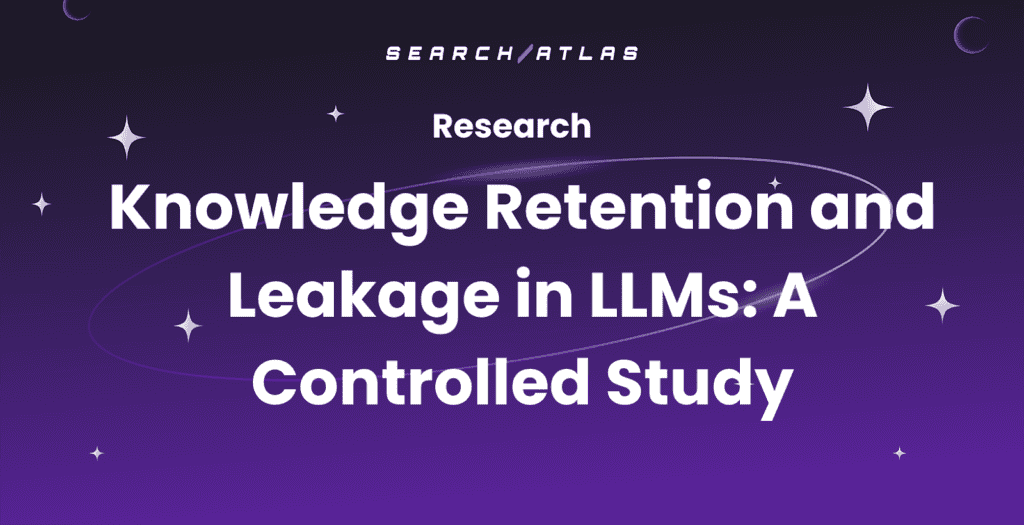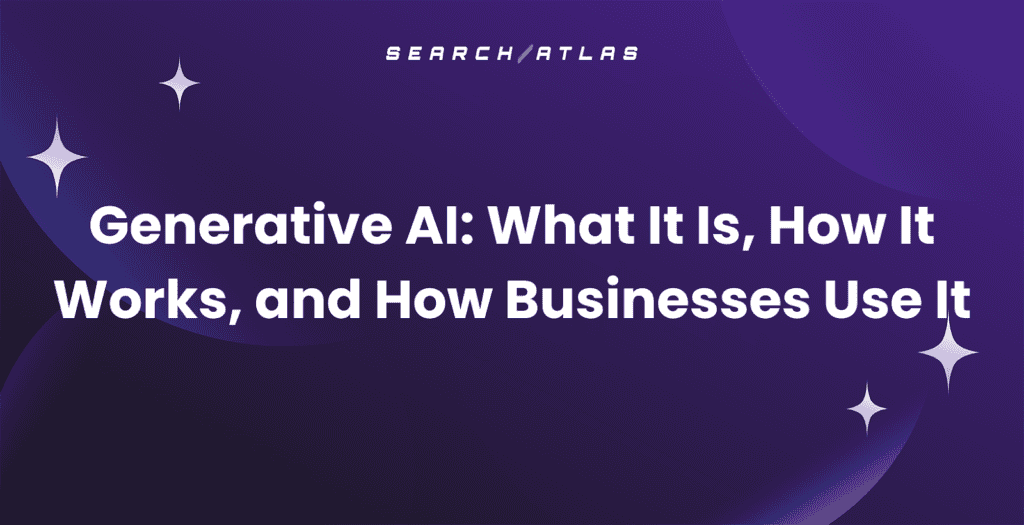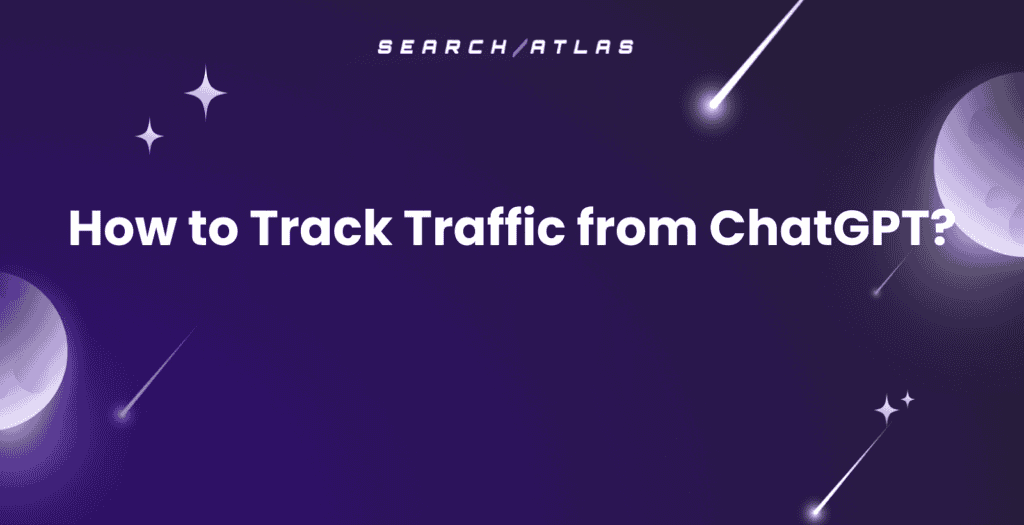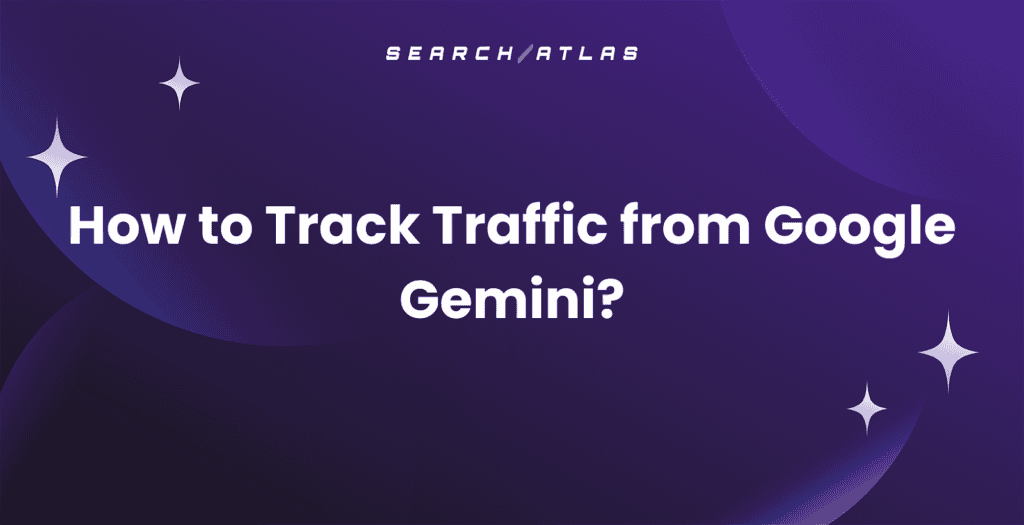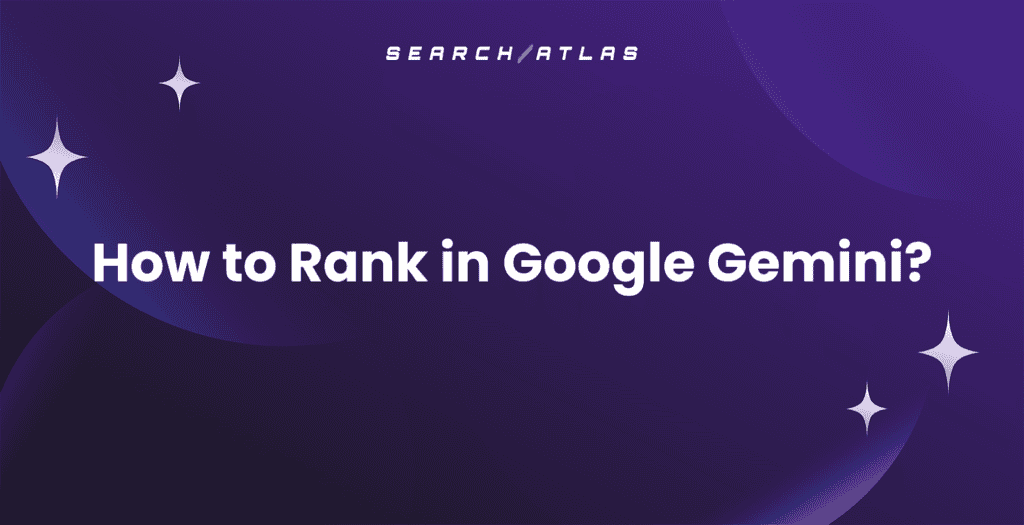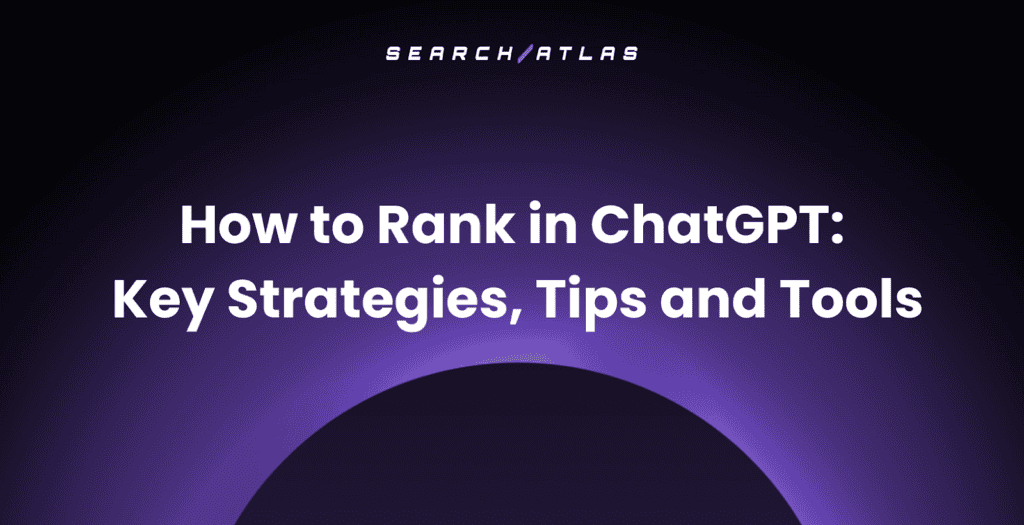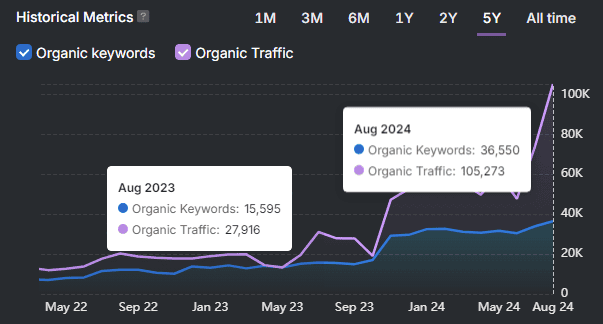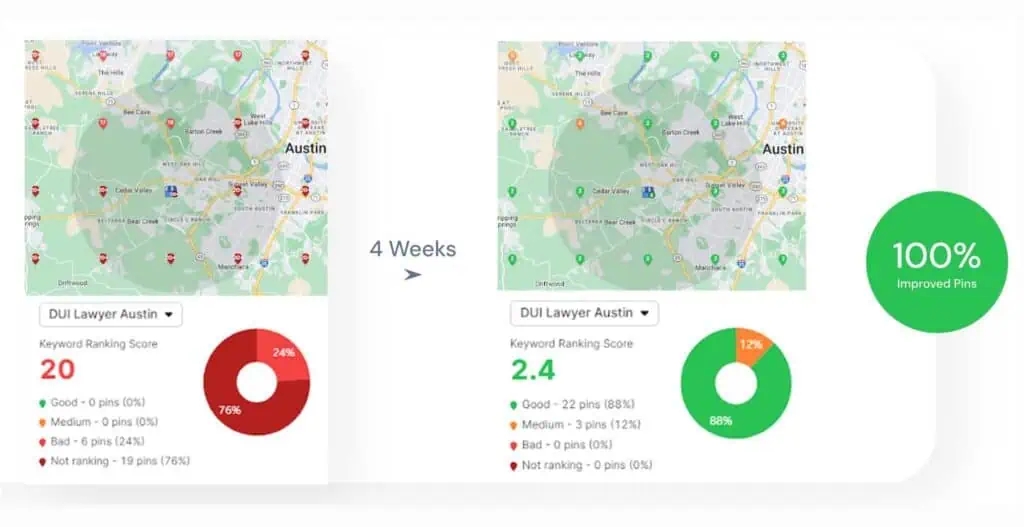Search Atlas gives you more than insights. It automates execution. While Similarweb is known for its market intelligence and traffic analytics, Search Atlas helps you turn those insights into action across your entire SEO strategy.
For teams used to analyzing data in Similarweb, this shift means more than just switching platforms. It is upgrading from manual work to automated SEO management with built-in AI.
This guide shows you how to migrate your core tasks from Similarweb to Search Atlas, tool by tool.
1. What Is the Initial Setup in Search Atlas?
There is no direct migration step needed from Similarweb for this. In Search Atlas, your first step is to create a project and connect your core data sources.
Create a New Project:
Log in to your Search Atlas account, scroll down in the main Dashboard, and click + Create new.

Enter your domain, select the target country, and optionally enter primary keywords for tracking.
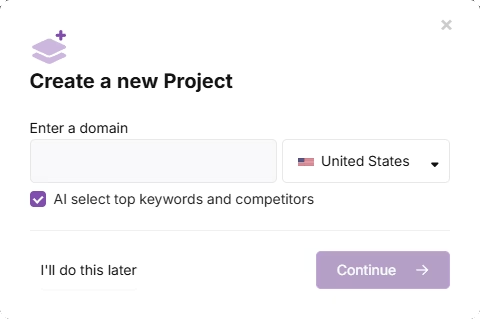
Add or remove recommended keywords, and also add your main competitors. You will be able to change both of these options later.

Connect Key Integrations
Google Search Console (GSC)
Click on Site Metrics > All Sites > Connect GSC Account.
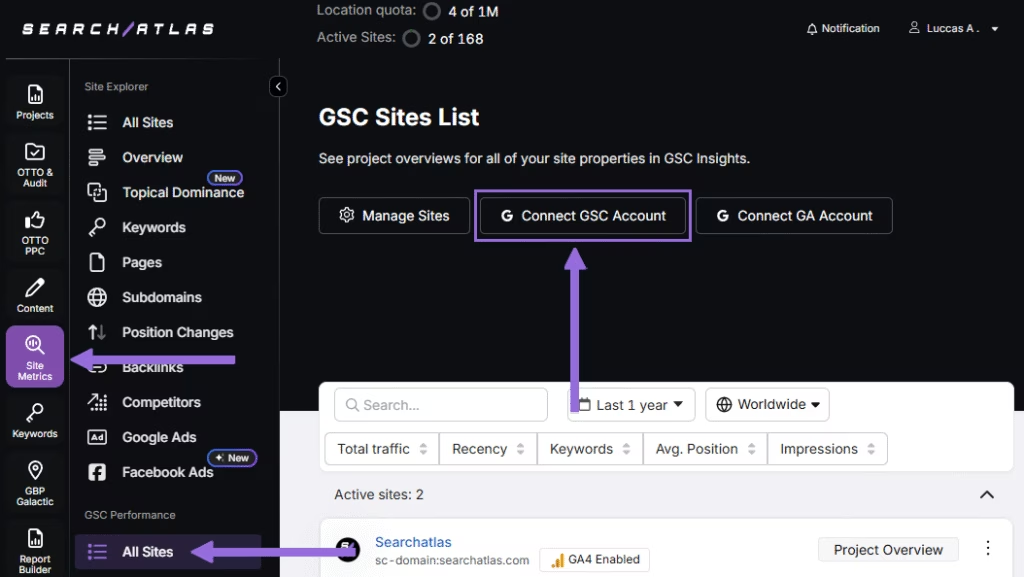
Authorize access and connect your verified property.
After GSC is connected, go to Manage Sites.
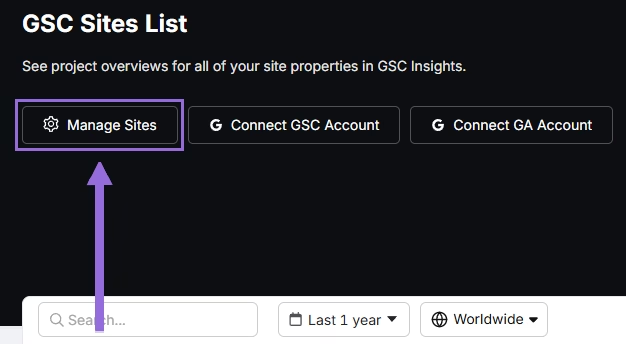
A slider will appear showing all imported GSC properties (they are disabled by default). Find your domain and then click Enable.
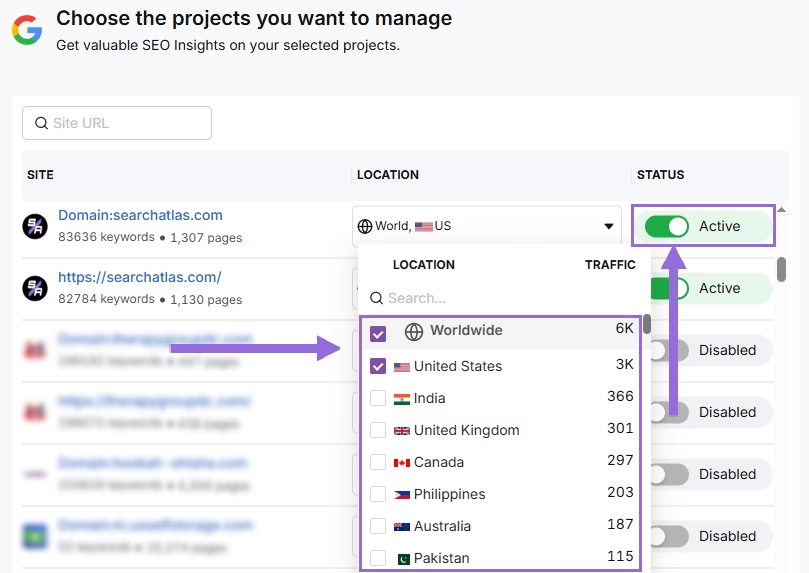
Google Analytics 4 (GA4)
From your GSC Performance dashboard, click on Connect Google Analytics 4.

Select your GA property or connect your GA4 account. Authorize access and connect your verified property.
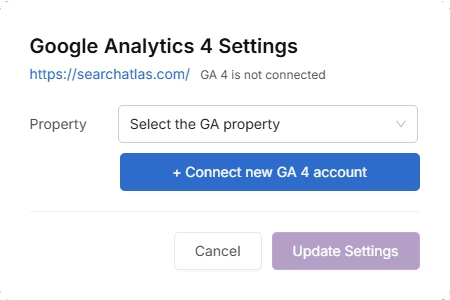
Once enabled, Search Atlas will link keyword data, impressions, CTR, and engagement metrics automatically.
You can use publicly shareable links for fast access to verification if needed.
2. How to Migrate from Similarweb Keyword Rank Tracker to Search Atlas
From Similarweb
Export your current rank tracking data as a CSV for historical reference.
In Search Atlas
Go to Keywords > Keyword Rank Tracker
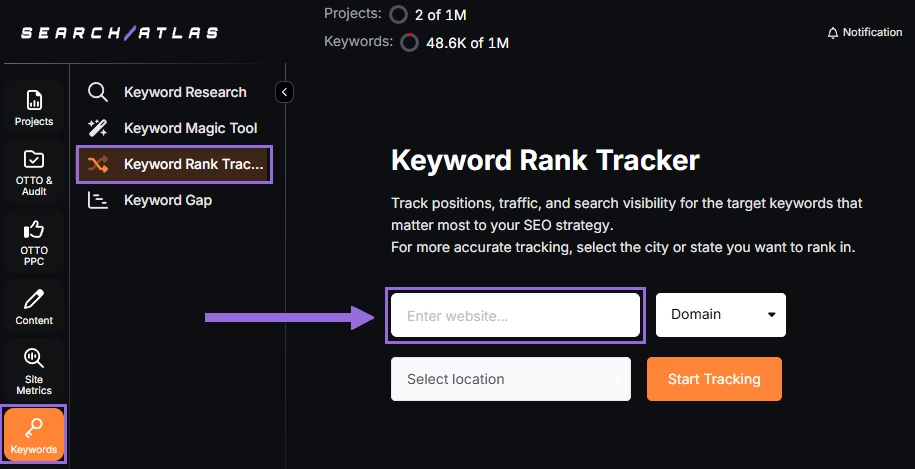
Enter your domain or target page, and specify the target location (country, state, city, county, or province).
Example: Track rankings for searchatlas.com in Las Vegas, Nevada
Click Start Tracking and connect your Google Business Profile (GBP), if applicable. Enter the name of your project, description, language, and keyword refresh interval (Daily, Weekly, Monthly, or Custom).
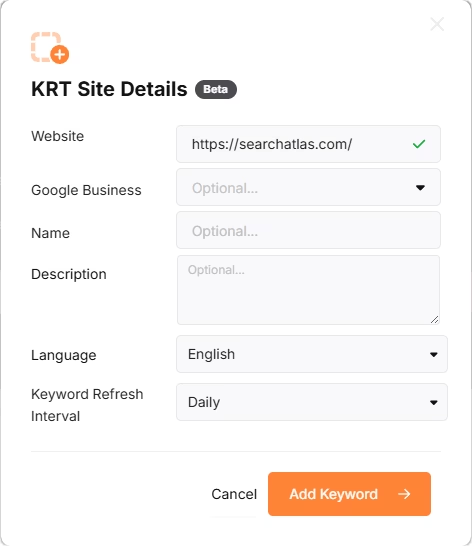
Search Atlas will automatically recommend keywords, and you can choose between selecting them or pasting keywords manually from the Similarweb CSV or PDF.
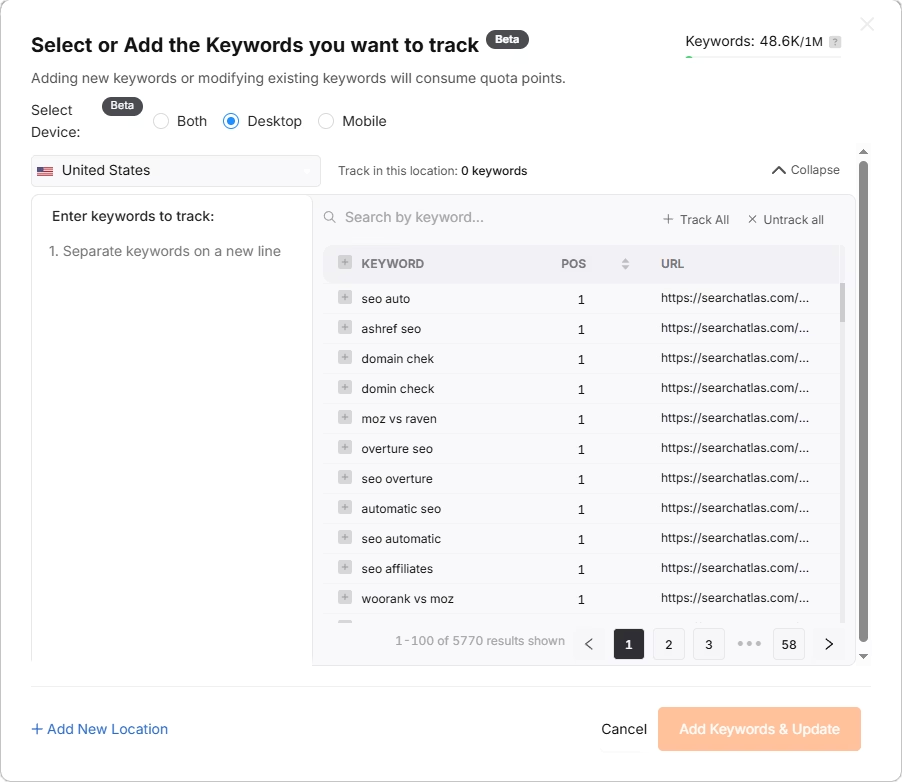
3. How to Migrate from Similarweb Site Audit Tool to Search Atlas Site Auditor
Before migrating, export your Site audit snapshot from Similarweb if you’d like to keep it for historical reference. There is no need to import this into Search Atlas.
From Similarweb
Go to Web Intelligence > Website Analysis > Website Performance.
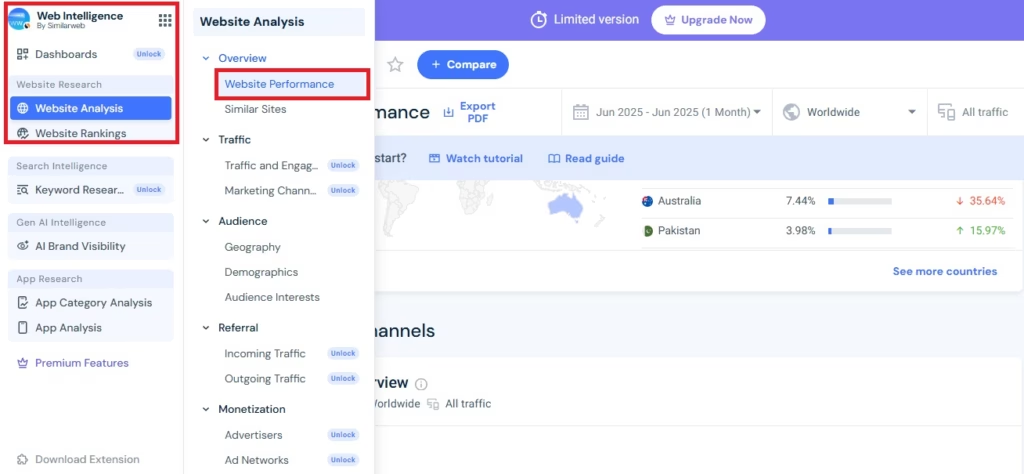
At the top of the dashboard, click Export PDF to download the full audit summary.
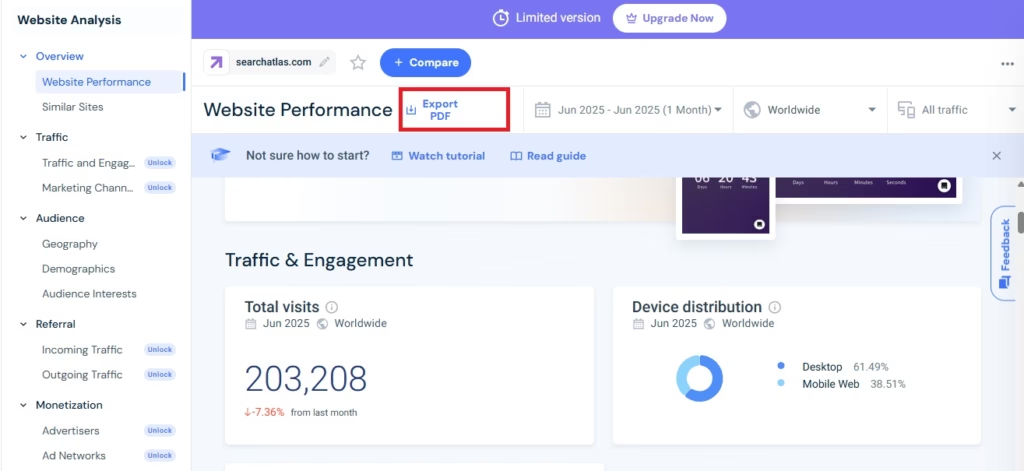
In Search Atlas
Set Up a Site Audit in Search Atlas
Go to OTTO & Audit > All Audits > Site Auditor.
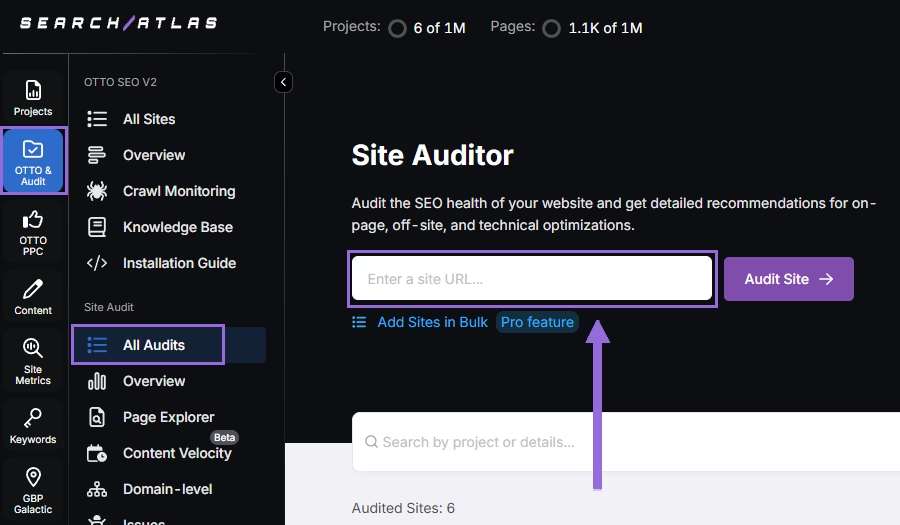
Enter your domain and configure the crawling features:
Configure crawling with the following options:
- User agent (use Search Atlas bot: recommended for best accuracy)
- Number of pages to crawl (default is 100)
- Adjust crawl speed (default is 20 pages per second)
- Set crawl frequency (default is every 7 days)
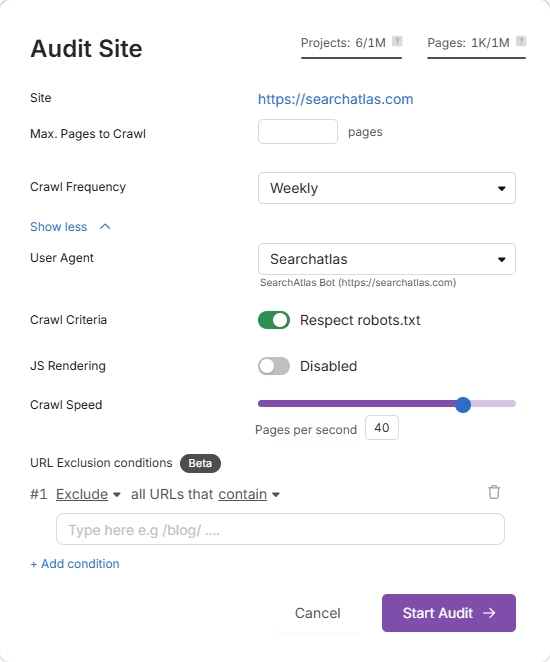
Run a full scan to launch the crawl across all pages under that domain.
Pro Plan Feature – Bulk Auditing:
For agencies or multi-site audits, go to Update Sites in Bulk and paste multiple domains to queue audits simultaneously.
This is ideal for auditing multiple projects quickly.
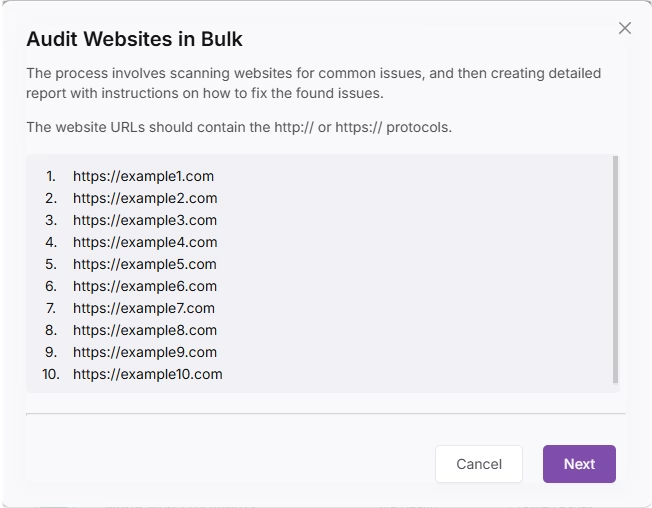
4. How to Migrate from Similarweb AI SEO Strategy Agent to Search Atlas OTTO SEO
Similarweb provides an AI agent for SEO planning. OTTO SEO, the Search Atlas AI SEO agent automates technical SEO tasks, on-page optimization, and content creation.
There is no export step in Similarweb. This is a new capability you’ll configure inside Search Atlas.
In Search Atlas
Obs: It’s necessary to go through the Site Audit on your project before activating OTTO.
Go to Projects > + Add a Website
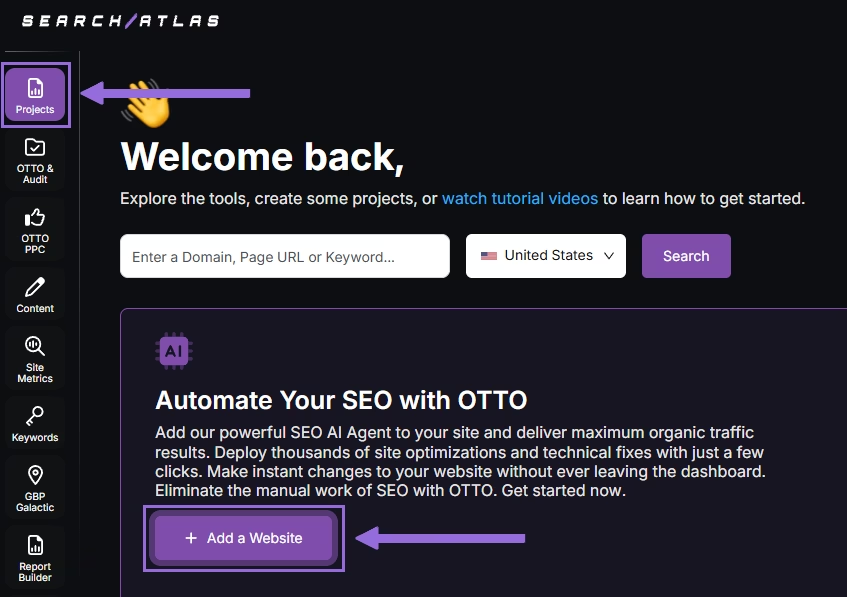
Select one of your projects that doesn’t have OTTO installed, or add a new website.
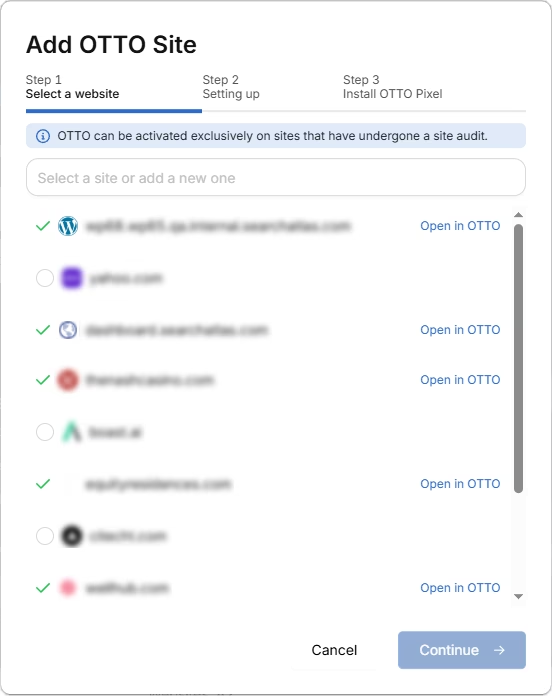
Select the GSC and GBP profiles for the project and add your business details.
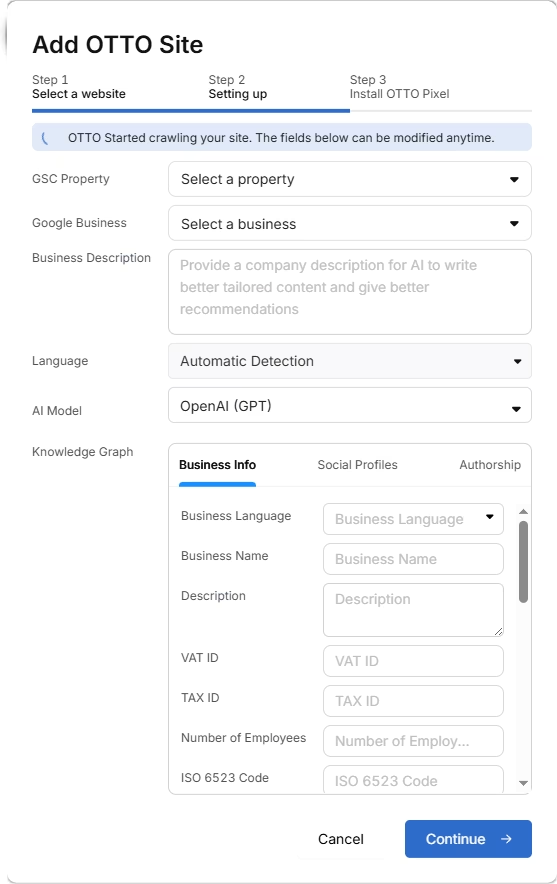
Follow the step-by-step tutorial to install the OTTO pixel on your website.
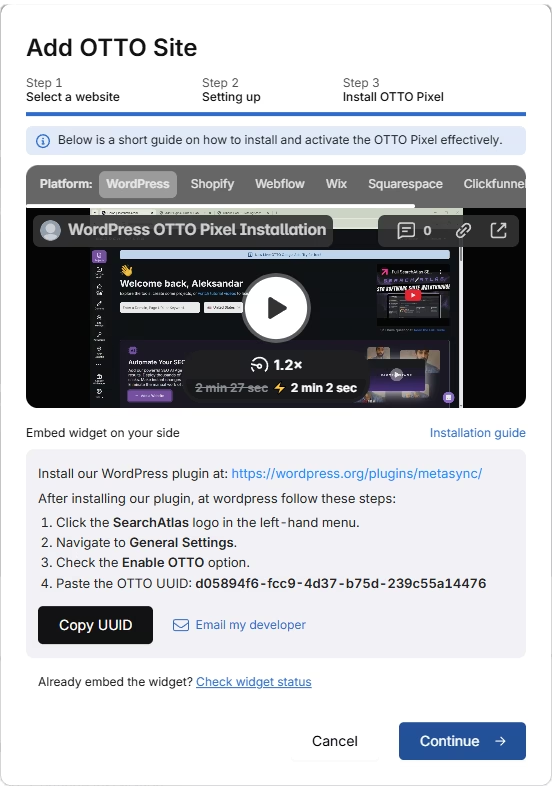
Installing OTTO on another CMS
Go to OTTO & Projects > Installation Guide. You will find short tutorials for:
- Google Tag Manager
- WordPress
- Webflow
- Squarespace
- Shopify
- ClickFunnels
- Wix
- GoHighLevel (GHL)
- Custom Installation
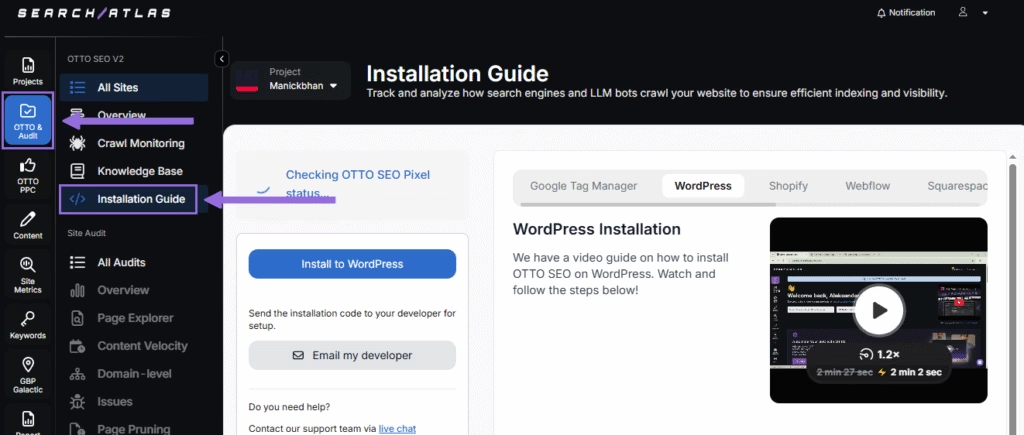
Here is a quick recap on how to install OTTO SEO on WordPress.
Go to your WordPress dashboard. Open the Plugins section. Search for “Search Atlas” in the plugin directory. Click Install Now, then activate the plugin.
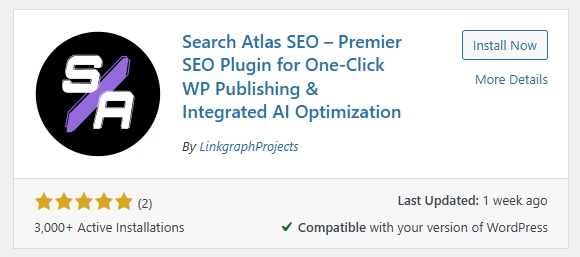
Copy the API key provided during setup. Open the Search Atlas plugin settings by clicking the Search Atlas logo in the left-hand menu. Navigate to General Settings. Paste the API key into the Search Atlas API Key field and continue.
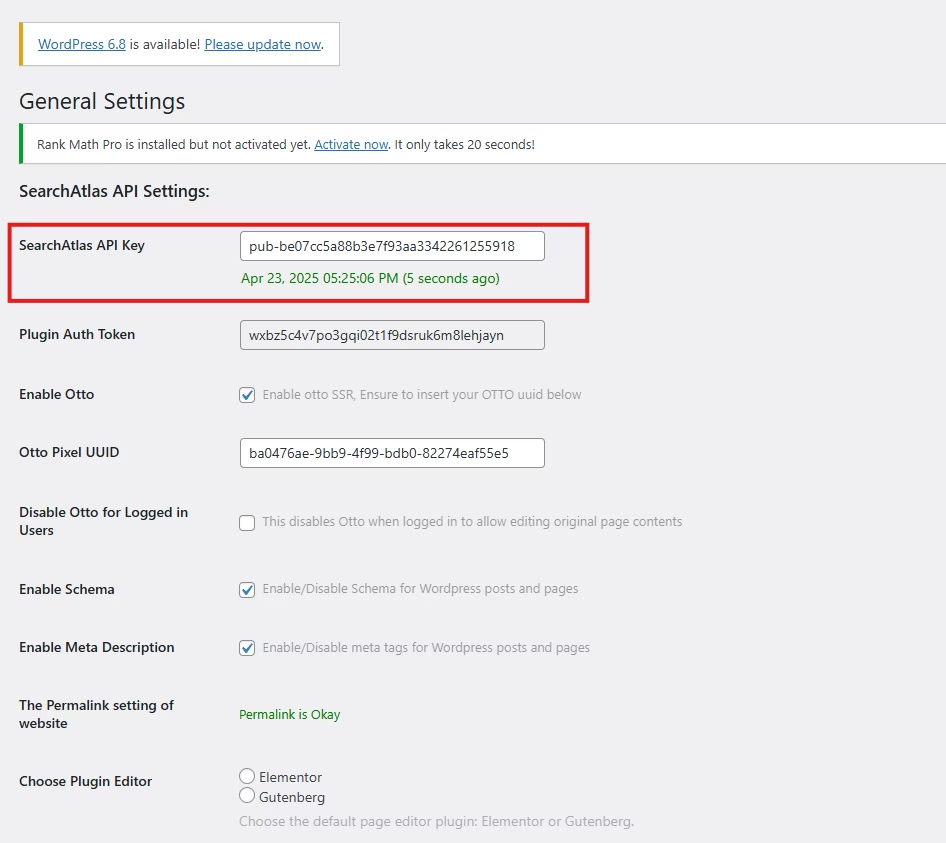
Copy the code provided in the next step. Return to your WordPress dashboard. Access the plugin settings again. In General Settings, check the Enable OTTO box. Paste the code into the OTTO Pixel UUID field. Save changes.
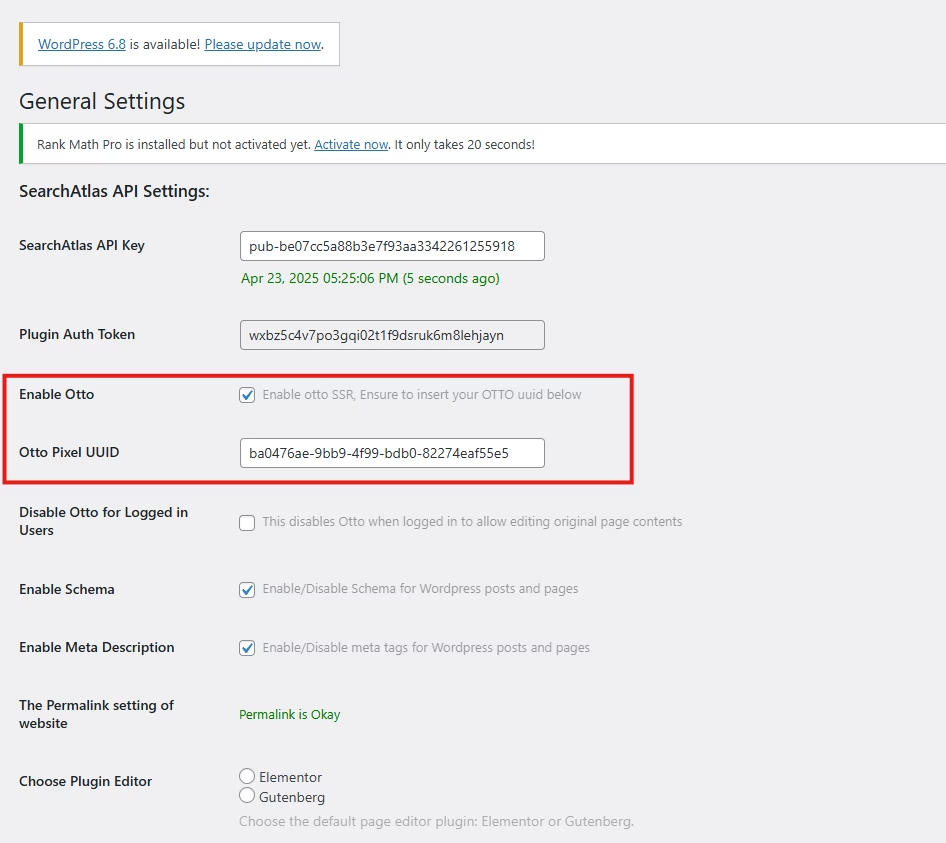
OTTO SEO now runs inside WordPress, automating fixes and SEO updates across your site.
How to Configure OTTO SEO?
Here is a quick tutorial on how to configure OTTO Autopilot and its settings.
5. How to Migrate from Similarweb AI Chatbot Traffic Tool to Search Atlas Crawl Monitoring
Track bot activity using Crawl Monitoring in Search Atlas. It shows real-time logs of bots like Googlebot, GPTBot, Bingbot, ClaudeBot, and others. You can see which pages were crawled, how often, and by which bot.
There is no export or import step needed for this feature.
In Search Atlas
Navigate to OTTO & Audit > Crawl Monitoring in your project dashboard.
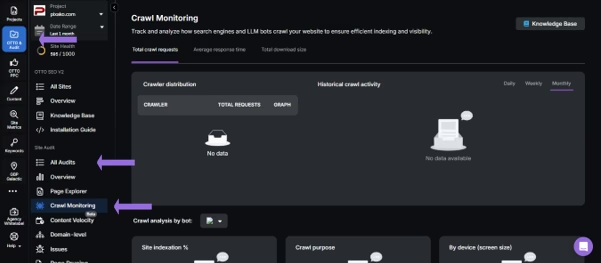
Here, you can view a real-time feed of all crawler activity on your site.
Use the filters to isolate specific bots like Bing and see which pages they are prioritizing and how often they return.
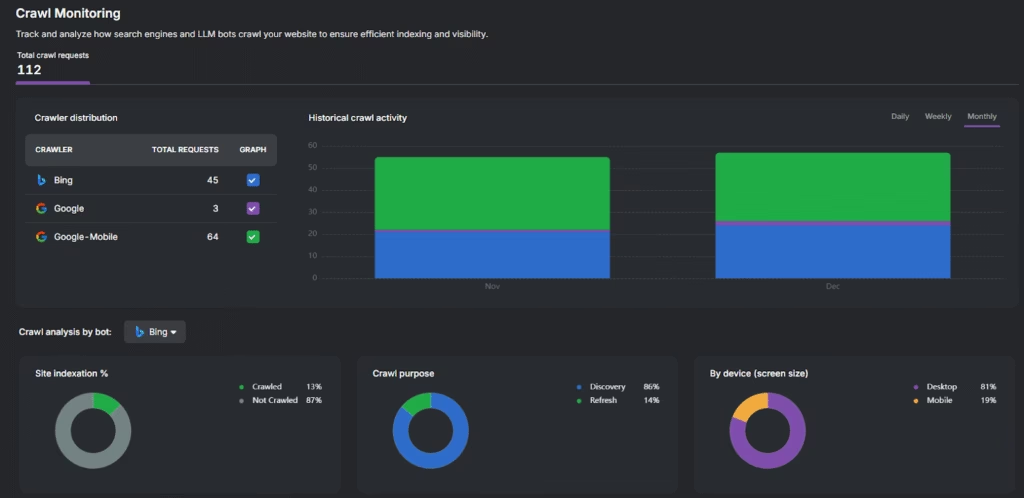
Make sure the OTTO pixel is installed on your site before this process.
6. How to Migrate from Similarweb Data Exporter to Search Atlas Report Builder
Similarweb’s Data Exporter allows you to create and schedule reports across datasets like traffic, engagement, demographics, and keywords.
If you need to retain any past reports, export them from Similarweb before migrating.
From Similarweb
Go to Data Exporter from the main menu.
Create a report
Select a Start with a template or Create a report from scratch
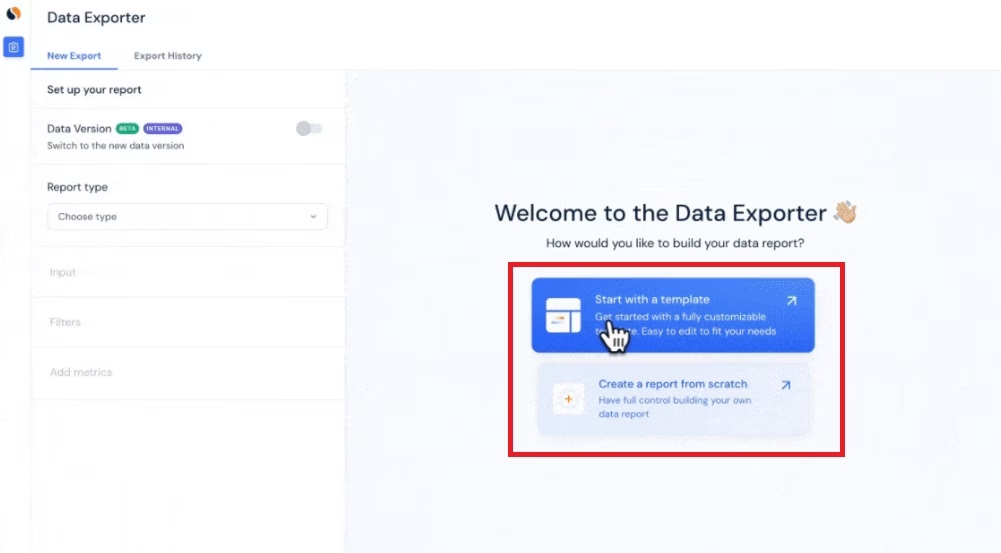
Select your report type (e.g., App Intelligence, Website Visits, Keywords, Demographics)
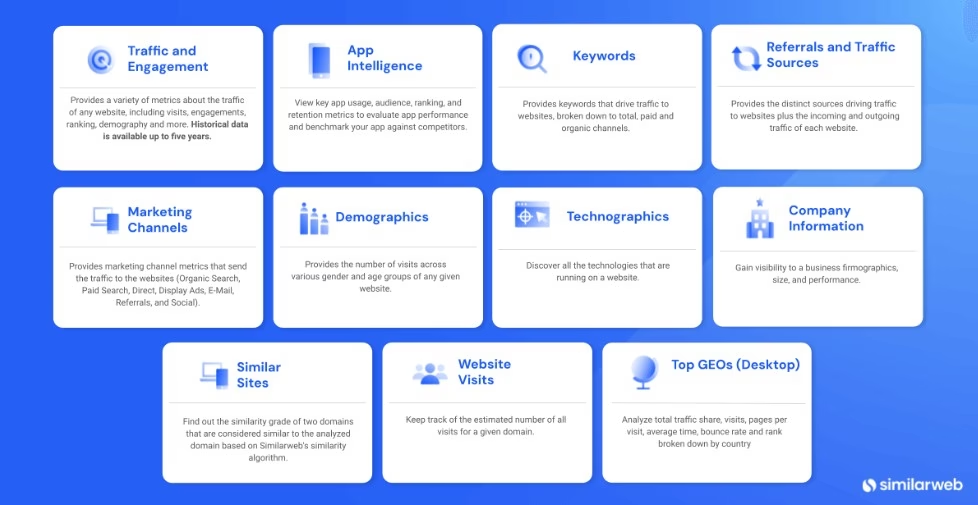
Upload your domains, keywords, or apps (CSV supported)
Set filters for date, country, and data granularity
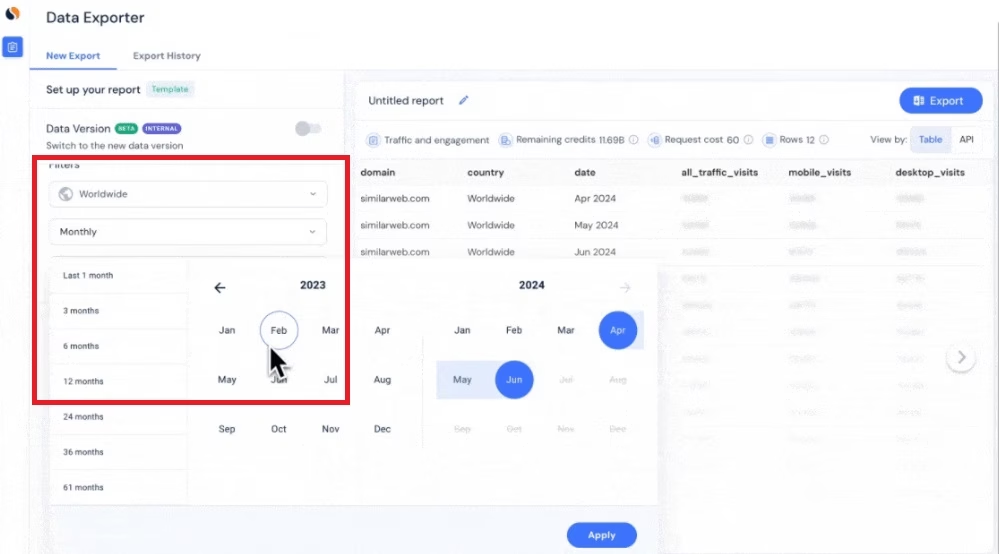
Choose the metrics you want
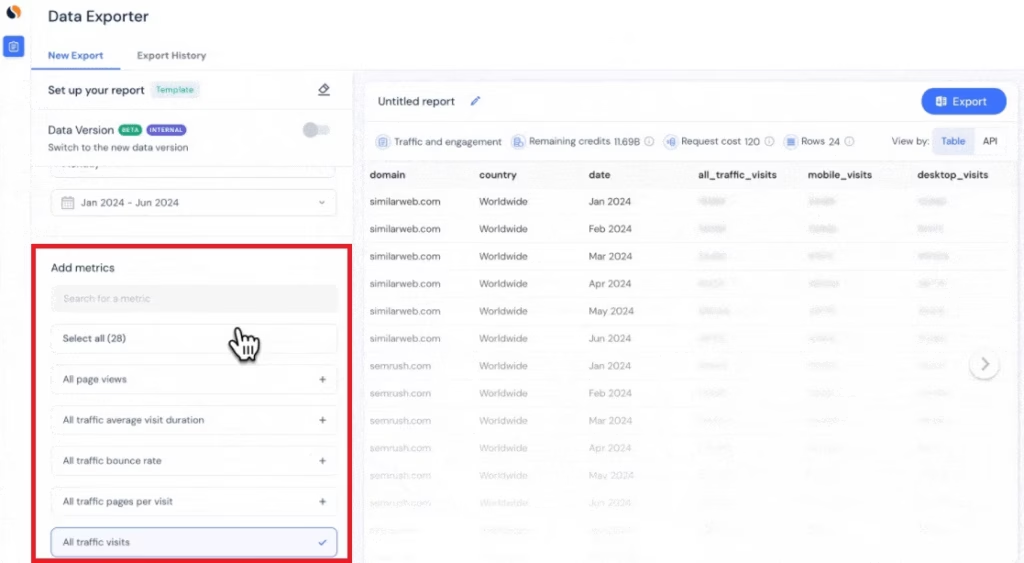
Click Export to download the file
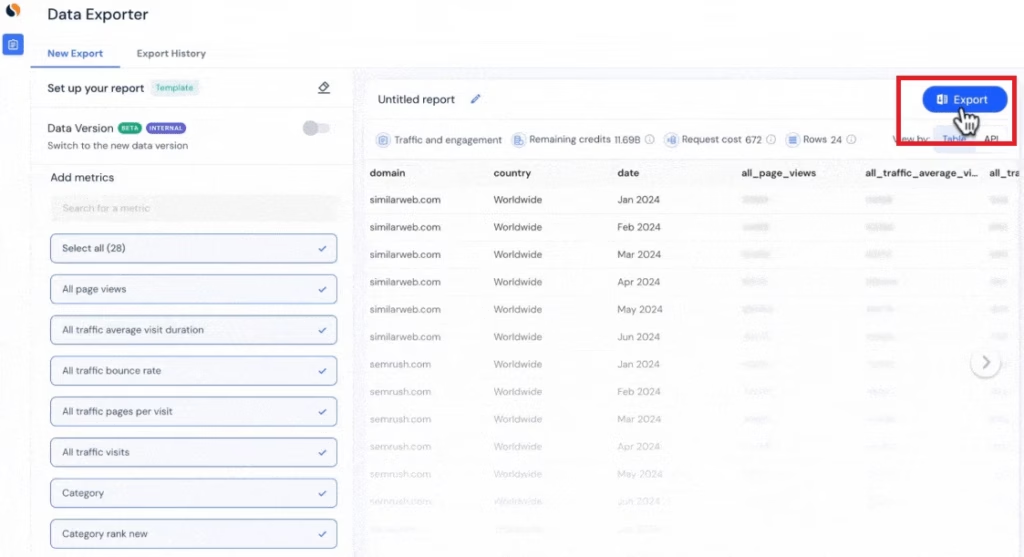
In Search Atlas
Go to Report Builder > Report List.
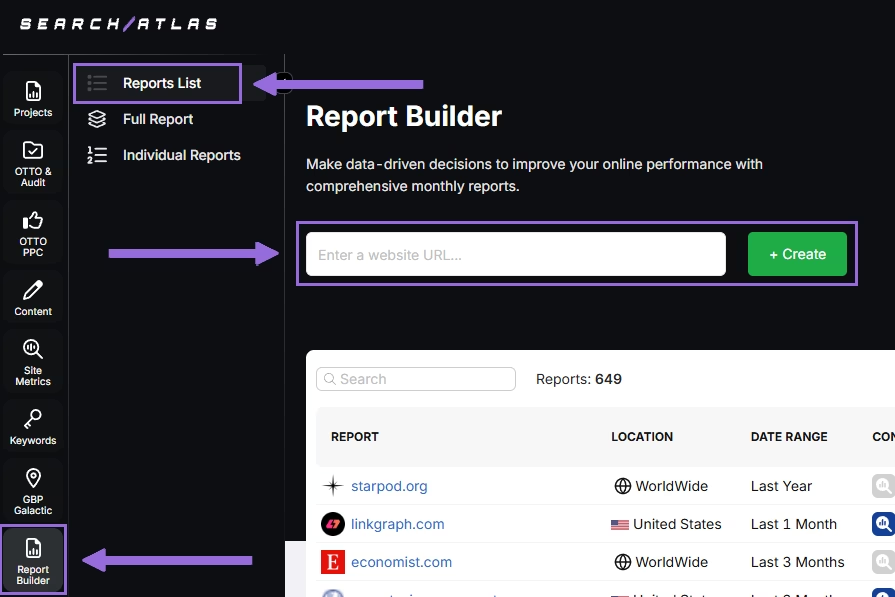
Choose the location, date range, and the widgets you want to report, like:
- AI Summaries
- Site Explorer
- OTTO SEO
- Orders & Tasks
- Google Analytics data
- Google Search Console data
- Facebook Ads
- Google Ads
- Google Business Profile
- Keyword Rank Tracking
Next, set up automated reporting by adding recipients. Select how often to email the report (weekly, monthly, or quarterly), and pick the day of the week for delivery.
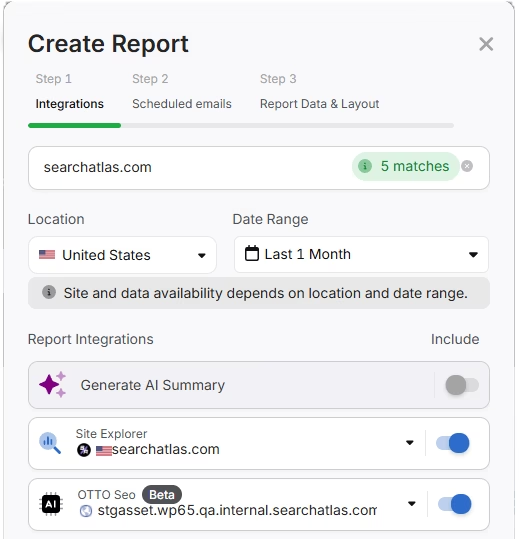
Choose between Default Layout and Custom Layout, and create the report.
Customize the Reporting
After creating the report, click Configure Report to change the Integrations, Scheduled emails, and Layout.
In the Layout section, you can customize the report entirely.
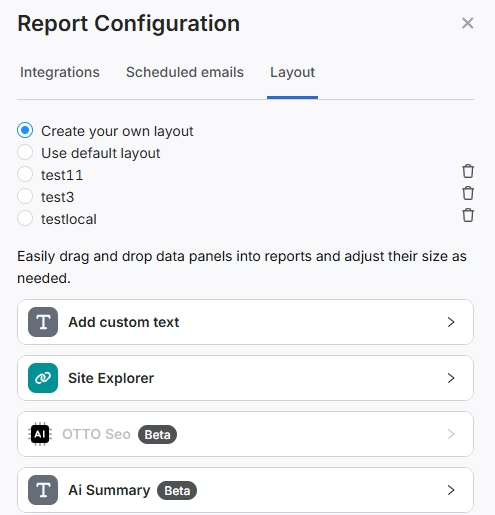
Click Add Custom Text to include your own text or HTML, allowing you to add branding elements like your logo, banner, or links.

Scroll down to click and drag each metric into the report. You can position them wherever you prefer.
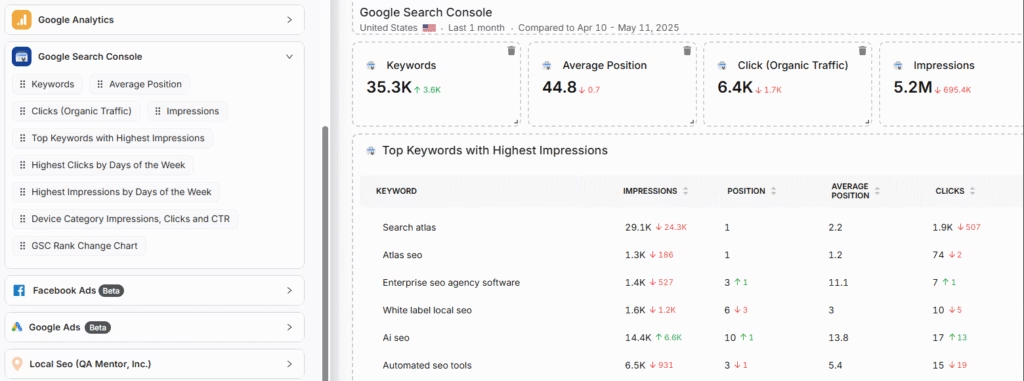
Add the AI Summaries
In the Integrations section, you can include the AI Summary Overview.
These automated summaries highlight the key insights from your report, making it easier for you and your stakeholders to quickly understand the results.

Sharing the Report
Once your report is configured, you can download it as a PDF or share it via a Share URL or Get iFrame Code.
The iFrame Code is an HTML element that allows you to embed another HTML page within your own.
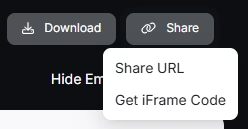
White Label Reporting
Search Atlas enables you to completely white-label your dashboard and URL.
Go to Agency White Label and set your custom dashboard URL and logo.
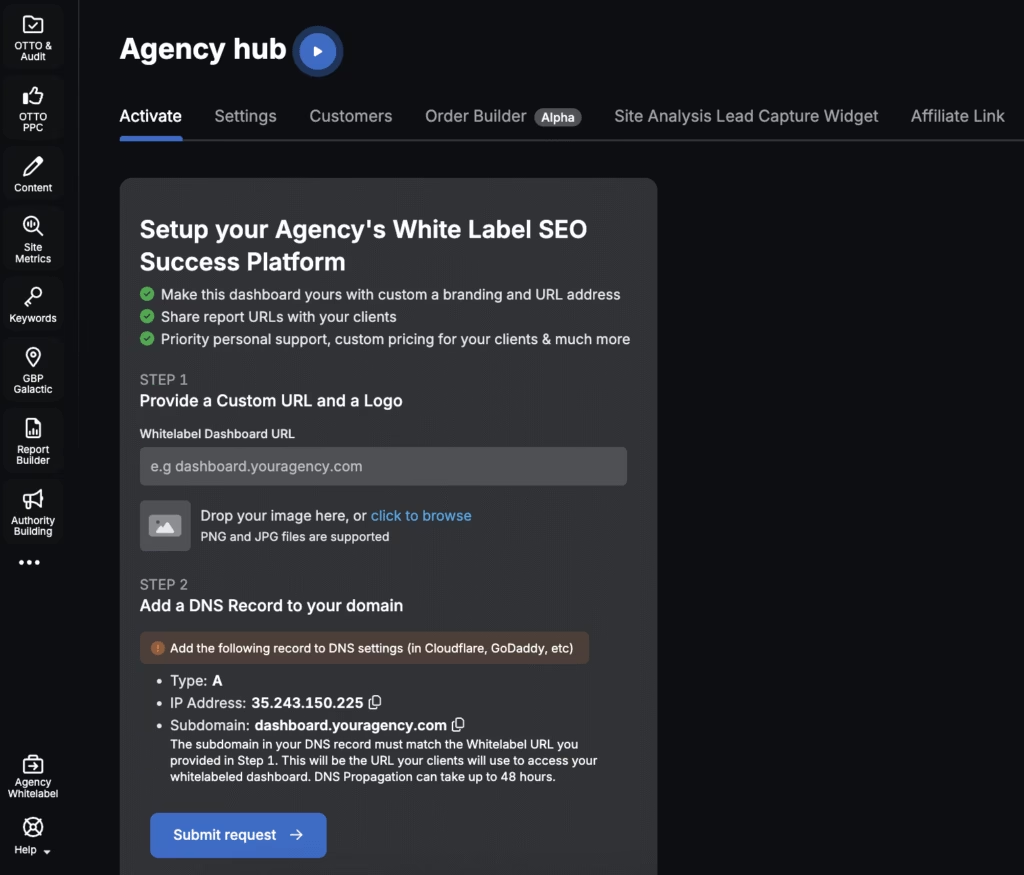
When you share your report via Shareable URL, it will display your logo and URL.
7. How to Leverage Search Atlas Onboarding Process
Search Atlas offers multiple support channels to help you with the migration process and any other questions. Here is how to make the most of our onboarding process.
Watch Tutorial Videos
Search Atlas offers step-by-step tutorials on YouTube to help you set up reports, dashboards, and automation.
Book a 1:1 Onboarding Session
During your trial, you can schedule a 1:1 onboarding session directly from the dashboard. A product expert will help you customize your setup, connect integrations, and configure OTTO SEO for automation.
Follow the 7-Day Email Campaign
As soon as you start your free trial, you’ll receive a 7-day onboarding email sequence. Each email walks you through a core feature.
Technical Documentation
Access full technical docs via the Help Center for detailed instructions on using every tool. Everything is searchable and regularly updated.


